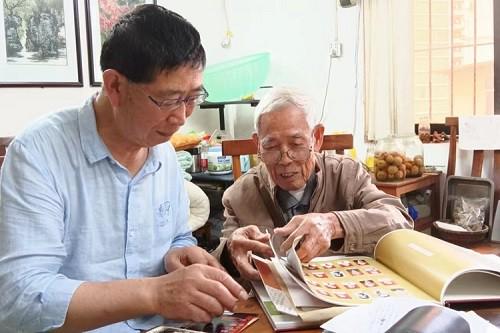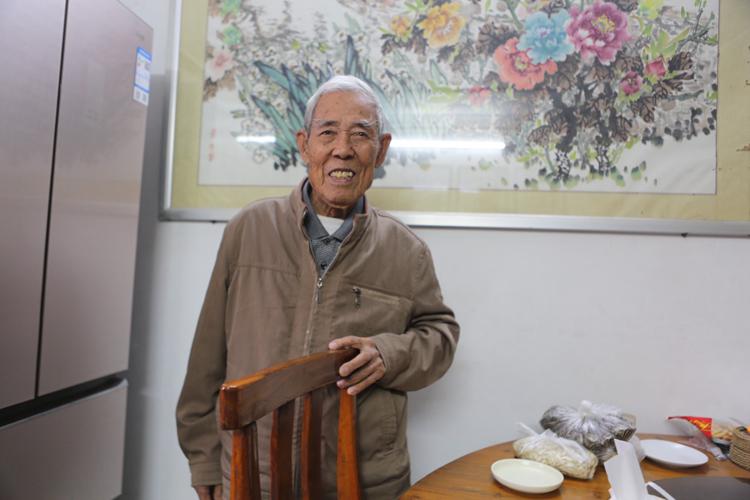In May 2023, I visited a famous elderly pastor who is almost in his 100th year in Nanning, the capital city of Guangxi Zhuang Autonomous Prefecture.
Pastor Paul Liang is a former member of the Standing Committee of the CCC&TSPM (China Christian Council and National Committee of the National Three-Self Patriotic Movement of the Protestant Churches in China), the former chairman of Guangxi TSPM, and the former chairman of Nanning TSPM.
The pastor was born in 1924 when the Protestant Anglican Church first entered Guangxi. In 1939, he worked for the Xianggui parish of the Anglican Church in Guilin. In 1949, Liang returned to Nanning and began to be a trainee missionary in the Anglican Church there. He began to study at Guangzhou Union Theological Seminary in 1951 and was anointed as a pastor in 1956.
During this period, Pastor Liang fell in love with a sister in a church hospital and got married. He was going back to Nanning and asked his wife whether she was happy to go home with him. His wife said yes but had to go back to Hong Kong to visit her parents first before going to Nanning. Pastor Liang did not go to Hong Kong for fear that his return would affect his domestic work.
Pastor Liang was questioned: "Before you came back, your wife went back to Hong Kong. Did you collude with imperialism to manipulate and control the church in Guangxi?" He was labeled a "rightist" as early as 1958 and was sent to the countryside to be “reformed through labor farm” for almost six or seven years.
Pastor Liang recalled, "In that most difficult time, I didn’t spend it with my colleagues and compatriots, but on a farm. When I was young, I had a severe duodenal ulcer. On the farm, I had simple food and plain water. I got up early and worked hard every day. However, my illness was cured."
At that time, all young church workers went to factories to be “reformed”. There were only a few older pastors left in the church, which was the all-low era of the church.
At that time, the largest church in Nanning was the current Gonghe Road Church, which was established by the U.S. Christian Missionary Alliance in 1874. Also in 1913, the Chinese general assembly of the U.S. Seventh-Day Adventist Church sent its first missionary, Dr. Liu Jian (originally from Xinhui, Guangdong), to Guangxi. With the approval of the government at that time, a piece of wasteland was allocated to Liu Jian to start a hospital. Liu’s wife was an American, and when she heard the news, she traveled around the United States to raise money.
In 1917, Liu built a two-story hospital, which initiated the modern hospital in Nanning. Then there was Zhongshan Road Church, which became a printing house during the turmoil.
In 1979, the policy of religious freedom was reaffirmed, and the property on Zhongshan Road and Gonghe Road was gradually returned to the church.
Pastor Liang said that less than a month after they resumed their gathering, they almost had an accident that year. One day, when they were having a service, the tile roof of the church collapsed. It turned out that termites had eaten away the wooden structure of the old church. Fortunately, no one was hurt on the first floor.
Later, Pastor Liang went to the government and informed the leaders that the returned church houses could not be used and asked them for help. As a result, the government funded the removal of the wooden top to form a cement one. The church roof was repaired, and the gathering could continue.
An English missionary of the Anglican Church went to Nanning, Guangxi, in 1907 to work as a doctor in customs. Later, when he saw a house on Zhongshan Road for sale, he bought it, which became the current temporary gathering place of Zhongshan Church.
As the predecessor of the First People’s Hospital of Nanning was also a Christian hospital, the hospital invited Pastor Liang to attend and make a speech for its establishment at its grand ceremony.
Pastor Liang said that for nearly twenty years he had written the book Christianity in Guangxi, a local chronicle of Christian history. However, that was not all, and the next step is to write a sequel. It is a pity that the book is out of print, and Pastor Liang himself has only one original “copy”.
-Translated by Charlie Li













